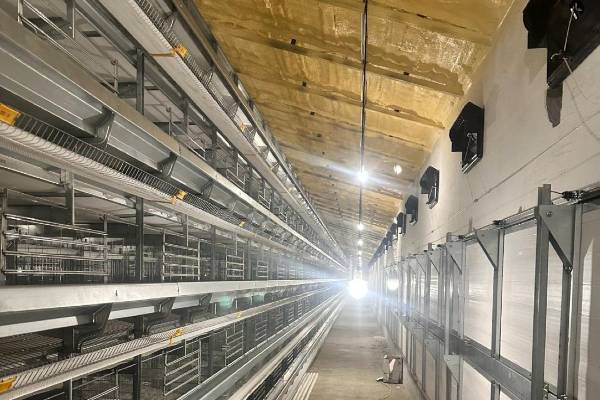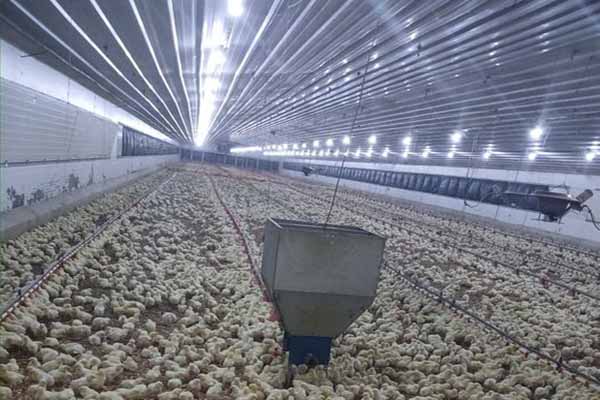Frequently Asked Questions about Tanzanian Chicken Farming Equipment
Time : 2025-06-30
Tanzanian chicken farming has seen significant growth over the years, with farmers increasingly relying on modern equipment to enhance productivity and efficiency. To help you understand more about the equipment used in this sector, we’ve compiled a list of frequently asked questions, providing detailed answers to aid in your decision-making process.

What are the key types of chicken farming equipment used in Tanzania?
The most common types of equipment used in Tanzanian chicken farming include:
- Brooders: These are used to keep the chicks warm in the first few weeks after hatching. They come in various sizes and can be fueled by electricity, diesel, or charcoal.
- Fans: Essential for maintaining proper air circulation in the chicken house, especially during hot weather.
- Waterers and Feeders: Automatic and manual options are available, designed to ensure the chickens have access to clean water and feed at all times.
- Incubators: Used for hatching eggs, these machines maintain a controlled environment to ensure healthy chick development.
- Egg Graders: These machines sort eggs based on size and quality, which is important for marketing purposes.
- Manure Handling Systems: Efficient manure management is crucial for maintaining hygiene in the chicken house and for potential use as organic fertilizer.
How do I choose the right type of brooder for my chicken farm in Tanzania?
Selecting the right brooder depends on several factors:
- Number of chicks: The size of the brooder should be able to accommodate the number of chicks you plan to raise.
- Power source: Consider the availability and cost of fuel in your area. Diesel or electricity may be more accessible in some regions.
- Control features: Some brooders come with features like automatic temperature control and alarms for safety.
- Portability: If you’re farming on a smaller scale or moving your chicks to different areas, a portable brooder might be more suitable.
It’s also essential to consider the long-term costs, such as fuel and maintenance, when choosing your brooder.
What are the advantages of using automatic waterers and feeders in chicken farming?
Automatic waterers and feeders offer several advantages:
- Consistency: They provide a constant supply of water and feed, ensuring that the chickens are never without these essentials.
- Savings: They reduce the labor required for feeding and watering, which can be a significant cost-saving measure.
- Health benefits: Automatic systems help maintain the cleanliness of the water and feed, reducing the risk of disease.
- Productivity: With consistent access to food and water, chickens are more likely to grow and lay eggs at optimal rates.
When selecting automatic systems, consider the size of your flock, the layout of your chicken house, and the type of feed and water you use.
<img  src=”https://zp.qualitychickenfarm.com/imgs/168-sets-of-h-type-automatic-poultry-cages-for-sale-in-nigeria.jpg” alt=”inserted image”>
src=”https://zp.qualitychickenfarm.com/imgs/168-sets-of-h-type-automatic-poultry-cages-for-sale-in-nigeria.jpg” alt=”inserted image”>
How do I maintain incubators for optimal performance?
Maintaining incubators is crucial for their longevity and efficiency:
- Regular Cleaning: Clean the incubator after each hatching cycle to remove any residual eggs or dirt that can harbor bacteria.
- Temperature Calibration: Regularly check and calibrate the incubator’s temperature and humidity settings to ensure a stable environment for the eggs.
- Airflow Management: Ensure that the airflow is consistent throughout the incubator to prevent temperature fluctuations.
- Replacement Parts: Replace any worn-out parts, such as thermostats or heating elements, promptly to maintain performance.
Following the manufacturer’s guidelines and conducting regular maintenance checks will help ensure your incubator operates effectively.
What are the best practices for manure handling in chicken farms?
Effective manure handling is essential for both the chickens and the environment:
- Separation: Separate manure from the chickens as soon as possible to prevent the spread of disease and to facilitate easier handling.
- Composting: Compost manure to break down organic matter and reduce the risk of disease transmission.
- Storage: Store manure in covered containers or piles to prevent odors and to keep it dry, which is important for composting.
- Utilization: Use the composted manure as organic fertilizer for your crops, which can improve soil health and reduce chemical use.
Implementing a proper manure management system will contribute to the sustainability of your chicken farm.
How can I ensure the quality of eggs with egg graders?
Egg graders play a vital role in ensuring the quality of your eggs:
- Regular Calibration: Calibrate your egg grader regularly to ensure accurate sorting.
- Sorting Criteria: Establish clear sorting criteria based on egg size, shape, and quality to maintain consistency.
- Inspection: Inspect eggs before and after sorting for cracks or other defects.
- Handling: Handle eggs gently to prevent damage during sorting and transportation.
By maintaining high standards of egg grading, you can improve the marketability of your eggs and ensure customer satisfaction.
Conclusion
Investing in the right chicken farming equipment can significantly impact the success of your operation in Tanzania. By understanding the various types of equipment available, their advantages, and best practices for maintenance and use, you can make informed decisions to enhance productivity and sustainability on your farm.











